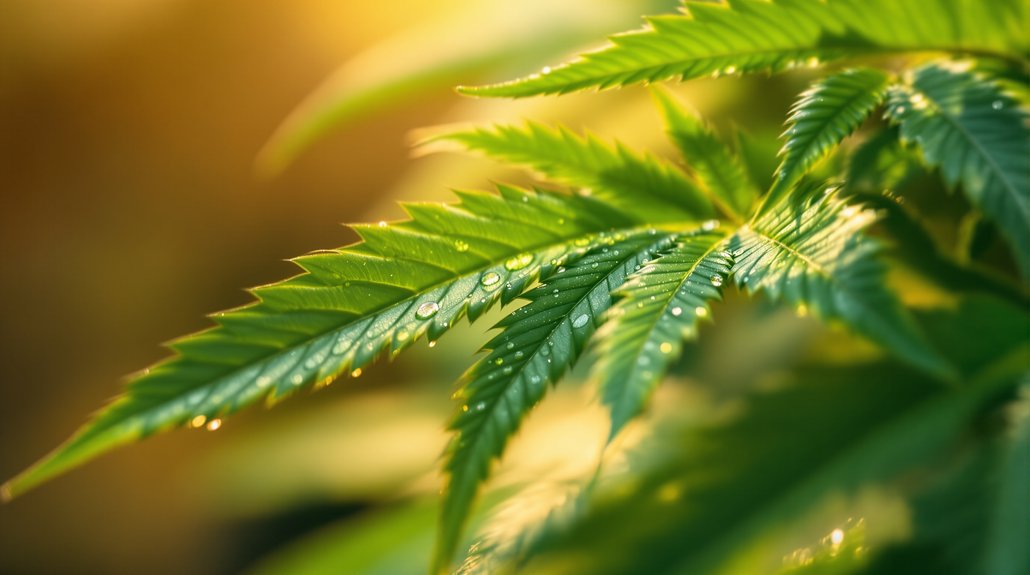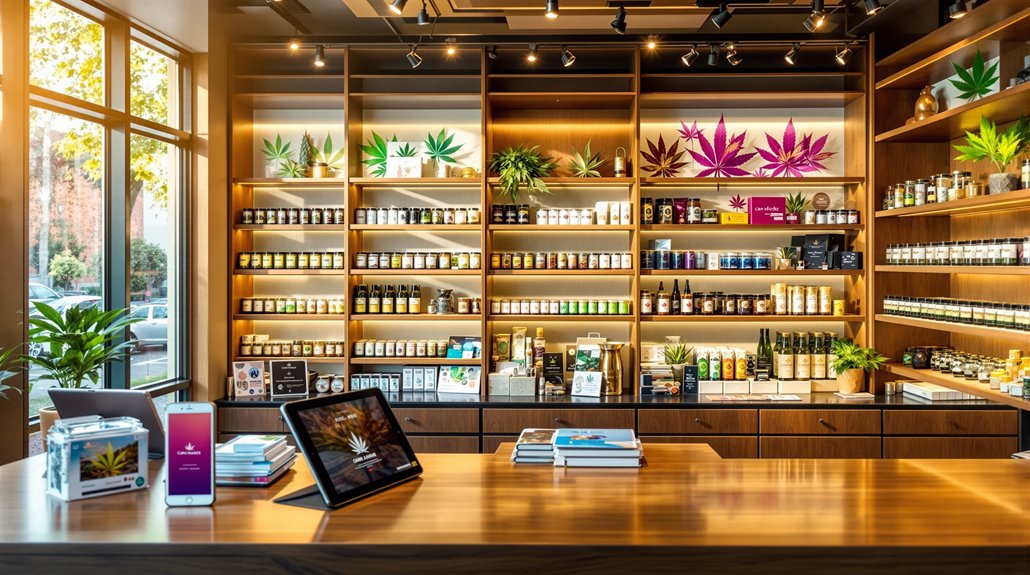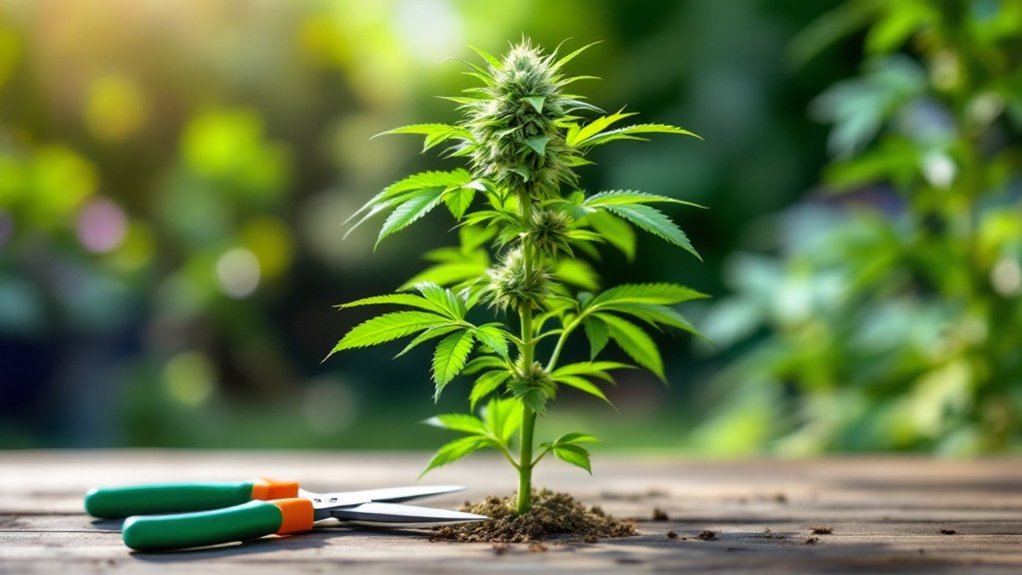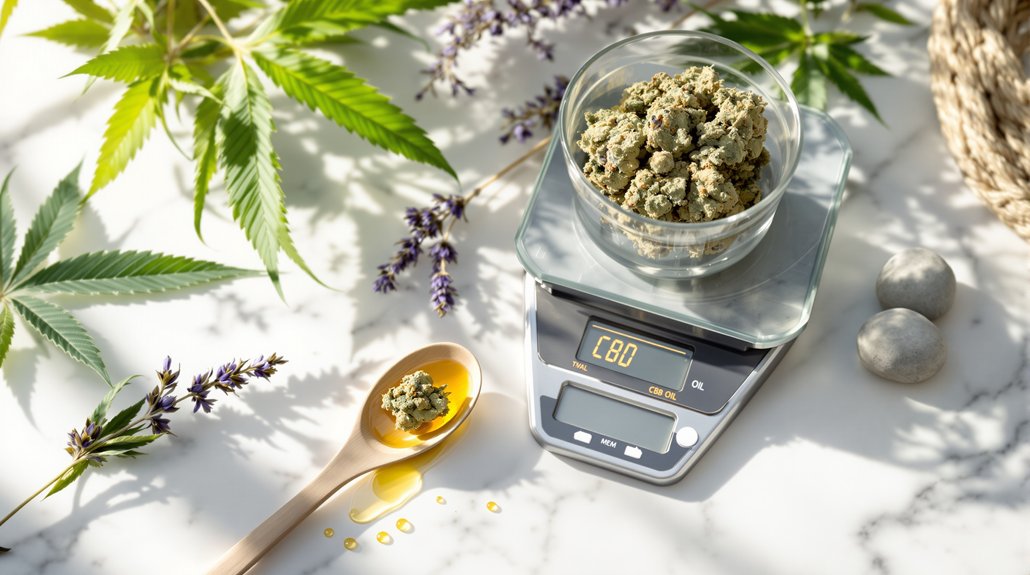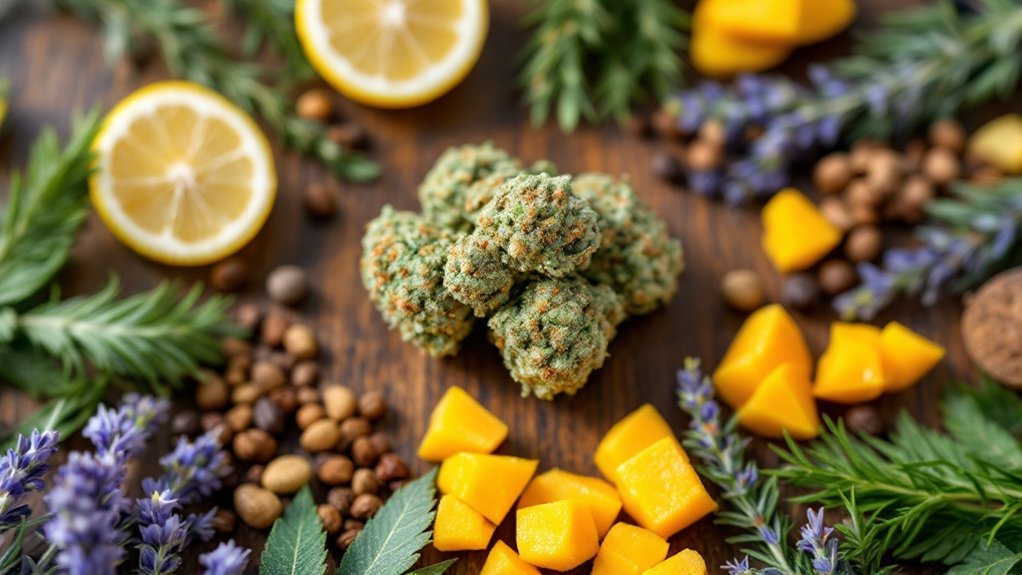Millions of Americans reach for prescription bottles when they’re stressed, but a growing number are eyeing cannabis dispensaries instead. Research labs across the country are documenting how specific cannabis compounds interact with the brain’s anxiety pathways. CBD shows promise without the high, while THC walks a tightrope between relief and heightened worry. The science is compelling, yet messy. Early findings suggest this ancient plant might offer modern solutions if researchers can untangle which compounds work best for whom.
The Science Behind Cannabis Compounds and Anxiety Relief

While cannabis has long been associated with relaxation, the scientific reality behind its anxiety-relieving properties proves far more complex than popular culture suggests.
The key players are THC and CBD, two compounds that behave like molecular frenemies in the brain’s endocannabinoid system.
THC delivers a dose-dependent anxiety rollercoaster. Low amounts reduce stress, while higher doses can trigger paranoia and panic attacks.
CBD acts as THC’s levelheaded partner, counteracting anxiety-inducing effects when used together. Products with balanced ratios show fewer negative mood effects than THC-dominant formulations.
These compounds target CB1 and CB2 receptors, modulating stress responses throughout the brain and immune system.
CBD also interacts with serotonin receptors, potentially explaining its mood-stabilizing properties. Recent research reveals CBD’s anti-inflammatory properties may contribute significantly to its anxiety-reducing effects beyond its direct interaction with brain receptors. A recent phase 2 clinical trial demonstrated significant improvements in both anxiety symptoms and cognitive function when participants used high-cannabidiol treatments.
CBD: Your Non-Intoxicating Ally Against Stress
Why does CBD consistently outperform THC in stress relief studies without triggering the anxiety spikes that plague high-THC products? The answer lies in CBD’s unique molecular dance with serotonin receptors and endocannabinoid pathways.
Unlike its intoxicating cousin, CBD modulates 5-HT₁A receptors to deliver anxiolytic effects without impairment risks.
Clinical trials reveal CBD’s precision targeting. Single doses between 15-400 mg reduce experimentally induced stress with effectiveness but zero sedation hangover. Seven double-blind placebo-controlled trials involving 232 participants have demonstrated CBD’s non-inferiority to pharmaceutical comparators in stress reduction.
Public speaking studies demonstrate significant physiological calming when administered beforehand.
The dosage sweet spot follows a U-shaped curve, moderate amounts outperform extreme doses. Current population surveys indicate that 13-26% of adults report past-month CBD use, reflecting growing acceptance of this non-intoxicating therapeutic option.
Unlike CBN which requires delayed onset of 2-3 hours for optimal sleep effects, CBD typically produces faster stress relief.
Broad-spectrum formulations consistently rate higher than isolates in participant reports, suggesting minor cannabinoids and terpenes enhance CBD’s stress-busting capabilities through synergistic mechanisms.
THC’s Double-Edged Sword: When Less Is More
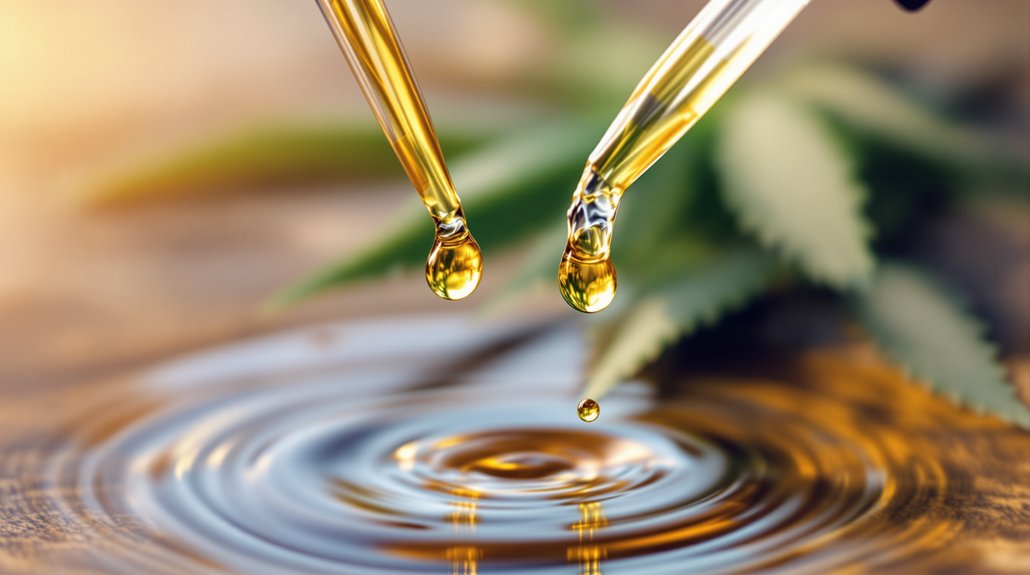
THC presents a fascinating paradox that challenges common assumptions about cannabis dosing for stress management. Research reveals a striking biphasic effect where approximately 7.5 mg of THC reduces self-reported stress and helps users perceive challenges as less threatening. Participants recovered faster from stressful events compared to placebo groups.
However, doubling the dose to 12.5 mg flips the script entirely. Higher concentrations trigger increased anxiety, negative mood, and subjective distress during stress-inducing tasks. Users rated experiences as considerably more threatening and showed behavioral signs of distress, including more frequent pausing during social interactions.
This less is more principle stems from THC’s interaction with the endocannabinoid system. Overactivation dysregulates stress pathways involving the amygdala and prefrontal cortex, fundamentally hijacking the brain’s natural calm-down mechanisms. The 2-AG molecule normally manages this critical pathway between brain regions, but stress impairs its anxiety-limiting function. Unlike raw cannabis which contains non-psychoactive THCA compounds, heated cannabis activates THC’s binding to CB1 receptors, producing its psychological effects. Importantly, neither dose produced significant changes in cortisol levels, suggesting THC’s stress-relief effects operate through psychological rather than hormonal pathways.
CBG: The Rising Star in Cannabis-Based Mood Support
As cannabis research expands beyond THC and CBD, cannabigerol (CBG) emerges as a compelling alternative for stress management without the intoxicating baggage.
Clinical trials demonstrate CBG’s impressive 26.5% reduction in overall anxiety compared to placebo’s 22.5%, achieving these results without motor impairment or cognitive dysfunction. The cannabinoid delivers a rare bonus: significant verbal memory enhancement alongside stress relief.
CBG’s safety profile reads like a researcher’s dream. No adverse effects, no intoxication, minimal abuse potential. It interacts with key mood-regulating receptors like 5-HT1A and GABA, explaining its therapeutic punch without the high. Like CBD, CBG shows potential for supporting emotional balance without masking underlying emotional issues. The rigorous testing involved a double-blind, placebo-controlled design with 34 healthy participants completing two sessions. Prior to this landmark study, no clinical trials had been published to confirm CBG’s anxiolytic effects in humans despite promising preclinical research.
Market response reflects growing confidence, over 51% of users self-medicate for anxiety, with 78% claiming superiority over conventional medications. Producers are scrambling to develop CBG-dominant products, capitalizing on demand for functional cannabinoids that won’t derail your day.
Navigating Risks and Research Gaps in Cannabis Therapy
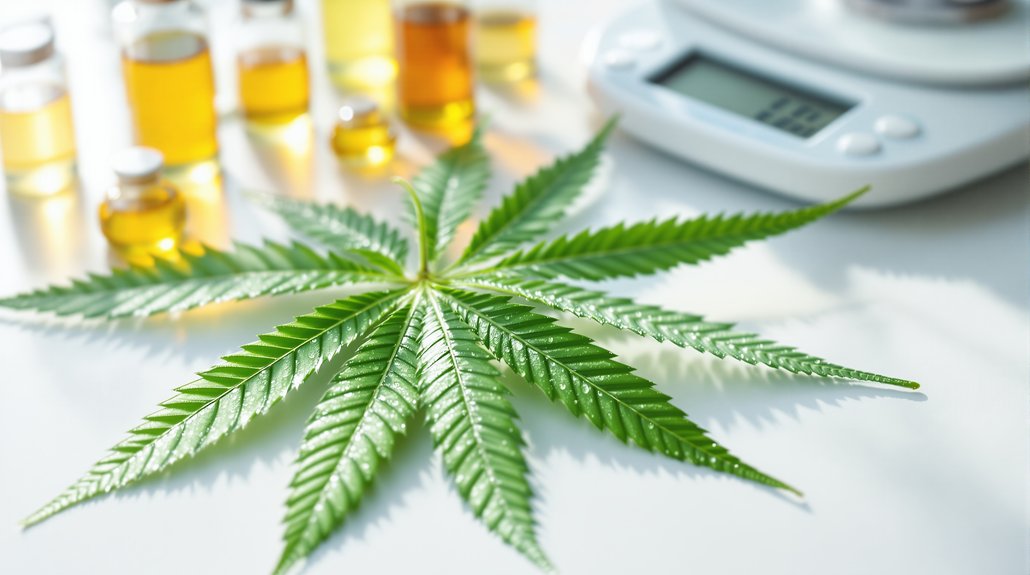
While CBG shows promise as a gentler alternative to traditional cannabis compounds, the broader landscape of cannabis therapy remains riddled with scientific blind spots and regulatory hurdles that complicate patient care.
Researchers struggle with wildly inconsistent dosing protocols and product variability that makes comparing studies nearly impossible. Clinical trials often resemble apples-to-oranges comparisons, with different cannabinoid concentrations, administration methods, and patient criteria muddying the waters. The Schedule I classification further restricts research access and deters funding agencies from supporting comprehensive cannabis studies.
Research consistency crumbles under wildly different dosing protocols and product variations, making meaningful scientific comparisons virtually impossible.
The stakes couldn’t be higher. Cannabis carries real risks including potential dependence, cognitive impairment, and mental health complications, particularly dangerous for vulnerable populations. Compounds like THCA show promise for mood stabilization during treatment, yet significant knowledge gaps remain regarding optimal dosing and enzyme interactions. Understanding the decarboxylation process is crucial when evaluating cannabis compounds for therapeutic use, as THCA remains non-intoxicating until heat converts it to psychoactive THC.
Variable potency in edibles creates accidental overdose scenarios, while absent standardized labeling fuels dosage errors.
